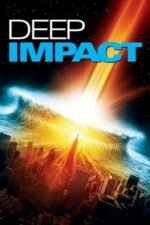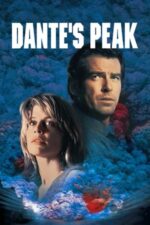When the World Crumbles: A Look at the Disaster Movie Genre
Okay, let’s talk disaster movies! They're a fascinating corner of cinema, aren't they? Something about watching meticulously crafted sets crumble and seeing ordinary people face extraordinary circumstances just… gets to you. It taps into primal fears, sure – fear of losing everything, of being powerless against forces beyond our control – but it also offers a strange kind of catharsis. We get to experience the chaos from a safe distance, and often, witness acts of incredible bravery and resilience.
The genre's roots are pretty clear: think back to 1950s classics like The Day the Earth Stood Still, which, while sci-fi, established the template of large-scale catastrophe and societal breakdown. But it really exploded with films like The Towering Inferno (1974) – I remember my dad being absolutely captivated by that one! The sheer scale of the special effects, the ensemble cast… it was a spectacle. And then came Earthquake in the same year, solidifying the formula: big event, lots of people, dramatic stakes.
What's interesting is how the genre has evolved alongside our anxieties. Early disaster movies often felt very much about societal order being restored – heroes saving the day and bringing things back to "normal." But more recent entries, like San Andreas Mega Quake, while still delivering on the spectacle, sometimes hint at a deeper unease about humanity's relationship with nature and even our own hubris. The idea of diverting an earthquake by triggering a volcano? That’s… ambitious, to say the least! It speaks to a desire for control that might be ultimately futile.
And then you have films like Mind Blown, which throws in a layer of conspiracy and government cover-ups. Suddenly, it's not just about surviving the disaster; it's about uncovering the truth behind it. That’s a shift – moving from purely external threats to internal ones as well. The Hong Kong film Cesium Fallout is particularly compelling too - the sheer scale of saving 7 million lives! It really highlights how cultural context shapes these narratives, and how different societies grapple with potential catastrophes.
Even something seemingly straightforward like The Night the Bridge Fell Down – a more contained disaster scenario – still explores those core themes: human connection under pressure, the fragility of infrastructure, and the surprising strength that can emerge when people are forced to rely on each other. It’s a reminder that disasters don't always have to be earth-shattering events; they can be intensely personal too.
And finally, Evil Puddle – while described as focusing on human connection - is an interesting outlier. It suggests the genre might be evolving beyond pure spectacle and towards more character-driven narratives exploring resilience in smaller, quieter ways.
So, are disaster movies "good" cinema? That’s subjective! But they're undeniably important. They reflect our fears, explore our potential for both destruction and heroism, and offer a strangely compelling escape – even when the world is literally falling apart around us. What disaster movie has stuck with you the most, and why? I'd love to hear your thoughts!







































